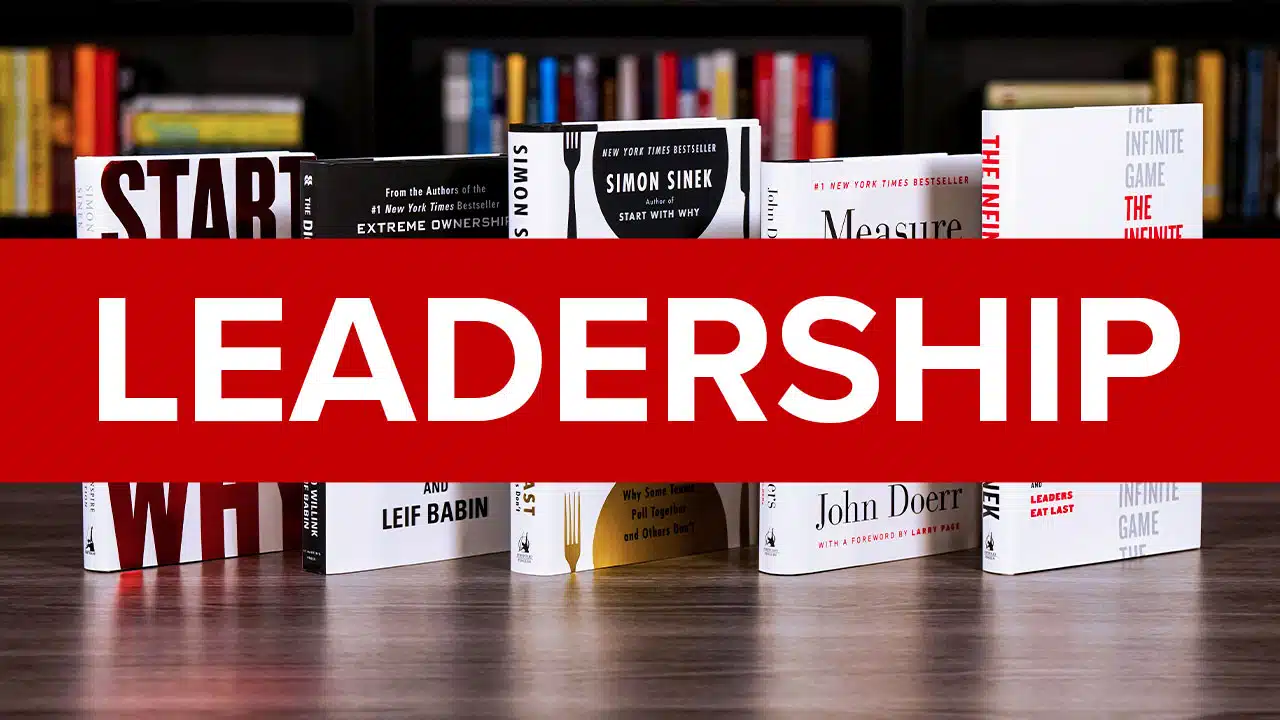Education is one of the most critical sectors in any society. Leadership in this field shapes schools and entire communities’ futures. For educators who aim to lead with impact, it’s vital to learn from experts and draw from their experiences. The best educational leadership books provide guidance and inspiration. These books are for principals, aspiring teacher-leaders, and education policymakers. They provide the tools and insights you need to excel. They explore teamwork, innovation, and better outcomes. Let’s explore the top books that every educational leader should read.
Top 10 Best Educational Leadership Books
- The Principal: Three Keys to Maximizing Impact by Michael Fullan
- Leaders of Their Own Learning: Transforming Schools Through Student-Engaged Assessment by Ron Berger
- Drive: The Surprising Truth About What Motivates Us by Daniel H. Pink
- Turnaround Tools for the Teenage Brain by Eric Jensen and Carole Snider
- Mindset: The New Psychology of Success by Carol S. Dweck
- The Leadership Challenge: How to Make Extraordinary Things Happen in Organizations by James M. Kouzes and Barry Z. Posner
- The Art of Coaching: Effective Strategies for School Transformation by Elena Aguilar
- Professional Capital: Transforming Teaching in Every School by Andy Hargreaves and Michael Fullan
- The Innovator’s Mindset: Empower Learning, Unleash Talent, and Lead a Culture of Creativity by George Couros
- What Great Principals Do Differently: 20 Things That Matter Most by Todd Whitaker
The Principal: Three Keys to Maximizing Impact by Michael Fullan
This book focuses on the principal’s role as a transformational leader in education. Fullan highlights three areas: leading learning, being a system player, and being a change agent. He challenges traditional views of leadership and offers innovative strategies for school improvement. Fullan’s clear language and examples make this a practical guide for principals, at any career stage, and one of the Best Books for Schools looking to enhance leadership and drive meaningful change.
Key Takeaways:
- Prioritize instructional leadership to enhance student outcomes.
- Collaborate with staff and external stakeholders to drive change.
- Focus on meaningful practices that create long-term impacts.
Leaders of Their Own Learning: Transforming Schools Through Student-Engaged Assessment by Ron Berger
Berger proposes a new way to assess students. It empowers them to control their learning. The book shows that tracking progress makes students more responsible, motivated, and engaged. It includes case studies, protocols, and tools to implement this model in schools. This resource is invaluable for educational leaders. It will help them shift assessment practices to student-centered learning.
Key Takeaways:
- Encourage students to set goals and reflect on their progress.
- Build a culture of accountability and self-driven learning.
- Use tools like student-led conferences to enhance engagement.
Drive: The Surprising Truth About What Motivates Us by Daniel H. Pink
This book explores the psychology of motivation. Its insights are very relevant to education. Pink explains that external rewards, like grades or incentives, often undermine intrinsic motivation. Instead, he argues for fostering autonomy, mastery, and purpose. The book isn’t for educators. But, it has ideas for creating motivating learning environments.
Key Takeaways:
- Shift from extrinsic rewards to intrinsic motivation.
- Design systems that encourage creativity and ownership in learning.
- Empower students and teachers by giving them meaningful choices.
Turnaround Tools for the Teenage Brain by Eric Jensen and Carole Snider
Adolescence can be a challenging time for students and educators alike. This book combines neuroscience with classroom strategies to help struggling teenagers succeed. Jensen and Snider provide tools for leaders. They can use them to foster resilience and lifelong learning. They teach brain-based learning and stress management. Both are key to student success.
Key Takeaways:
- Understand the unique challenges of the teenage brain.
- Implement strategies to reduce stress and increase engagement.
- Help students develop habits for lifelong success.
Mindset: The New Psychology of Success by Carol S. Dweck
Dweck’s research on mindsets has changed how educators develop students. This book shows that a growth mindset boosts resilience, adaptability, and academic performance. Educational leaders can use these insights. They can build a culture of continuous improvement in their schools.
Key Takeaways:
- Encourage students to embrace challenges and learn from failures.
- Promote a culture where effort is valued over innate ability.
- Lead by example by adopting a growth mindset yourself.
The Leadership Challenge by James M. Kouzes and Barry Z. Posner
A timeless classic on leadership, this book outlines five practices. Leaders can use them to inspire and motivate their teams. Although it applies to all fields, the lessons are particularly relevant to education. The authors give practical tips to build trust, foster teamwork, and create a shared vision for success.
Key Takeaways:
- Model the behavior you want to see in your team.
- Foster a culture of trust and open communication.
- Inspire innovation by encouraging calculated risks.
The Art of Coaching: Effective Strategies for School Transformation by Elena Aguilar
Coaching is one of the most effective tools for professional growth in education. Aguilar gives leaders practical advice. It helps them support teachers’ development. Her book has exercises, templates, and questions. They help leaders improve their coaching skills and drive change in schools.
Key Takeaways:
- Build trust with teachers to foster a supportive environment.
- Use reflective questions to encourage self-directed growth.
- Create personalized coaching plans based on individual needs.
Professional Capital: Transforming Teaching in Every School by Andy Hargreaves and Michael Fullan
This book focuses on building “professional capital” to transform schools. The authors argue that educational change relies on investing in teachers as professionals. They provide a roadmap to improve collaboration, trust, and innovation in schools. It outlines strategies for sustainable growth.
Key Takeaways:
- Prioritize professional development for teachers.
- Encourage collaboration to build collective expertise.
- Foster a culture of trust and shared responsibility.
The Innovator’s Mindset by George Couros
Couros encourages leaders to embrace creativity and innovation in education. He challenges traditional practices and inspires leaders to create learner-centered environments. The book aims to empower students and teachers. It shares motivational stories and practical advice to spark innovation.
Key Takeaways:
- Encourage risk-taking and experimentation in learning.
- Empower teachers and students to pursue creative solutions.
- Build a culture of innovation across your school.
What Great Principals Do Differently by Todd Whitaker
Whitaker outlines 20 key practices that set exceptional principals apart. The book gives clear advice on communication, decision-making, and building a positive school culture. It’s a must-read for principals looking to refine their leadership skills.
Key Takeaways:
- Focus on the people, not the programs.
- Lead with consistency and integrity.
- Create a culture where students and staff feel valued.
Frequently Asked Questions
Why should educators read leadership books?
Leadership books provide tools and insights. They help educators to inspire, tackle challenges, and improve outcomes. They provide practical advice from experienced leaders and experts.
Are these books suitable for teachers?
Yes, many of these books, like The Art of Coaching and Mindset. These are great for teachers seeking to grow into leadership roles.
How do I choose the right book for me?
Consider your current challenges and goals. For example, if you’re focused on motivation, Drive might be a good fit. If you want to foster innovation, try The Innovator’s Mindset.
Conclusion
Educational leadership is more than managing schools. It’s about inspiring others and creating a thriving environment for all. These ten books can help leaders at all levels. They offer knowledge, strategies, and inspiration. These resources can guide principals, teachers, and aspiring leaders. They will help you become an impactful and transformative leader. Start your journey today with one of these empowering reads!

